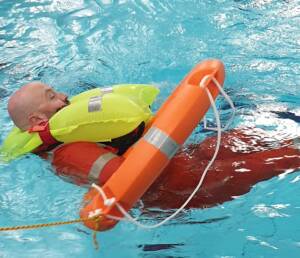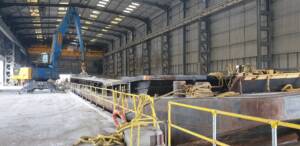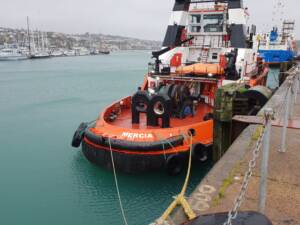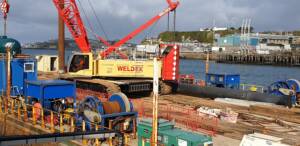Our range of courses for Marine Civils and Shoreside staff is being developed. The courses currently on offer include:
Waterside Personal Safety Course - either a 1 day full course or can be broken in to two half day modules
Aimed at shoreside personnel who are working near to the water or on a jetty/pier. Suitable for port operatives or construction workers or shore teams accessing vessels. Content of the course includes:
Understanding of lifejacket types and common features, correctly check a lifejacket before use, check and fit a lifejacket
Know the safety issues when working next to the waterside and flowing tidal water.
Understand the potential hazards that could cause falling into water.
Have a knowledge of the positioning and use of riverside safety equipment
Knowledge of Safe access to vessels and barges including responsibilities
Understand initial and secondary actions to sustain life and attract attention when in the water.
Understand the local waterside environment and the importance of the Operational
Knowledge of the construction works of the area that they are working.
Knowledge of the rescue services, types of rescue device used and bankside rescue aids.
Experience throwing a lifering and throwing line over a railing.
Understands the importance of repacking a throwing line correctly.
The full day course includes a practical session at a swimming pool where participants correctly don and use lifejackets in the water, protect airway, correctly move position and reduce heat loss in the water. Receive a lifering/throwline in the water and experience the difference between correct and incorrect lifejacket wear.

Barge Loading, regulation, Stability and Safety
The aim is to provide an overview and knowledge of vessel types, maritime regulation and loadingconsiderations. The course is a mix of classroom and practical sessions which include:
Knowledge of Craft/Pontoon Types and Characteristics
Understanding of Deck Cargo types, stresses on decks and cargo securing
Understanding of Bulk Cargo, loading order and liquefaction issues
Understanding of Publications & Documents, LOLER, PUWER, Safety Codes
Understanding of Safety Management of the operation and intended passage
Loading & Unloading, vessel/barge stability and loading issues

This one day course has been designed to provide an overview and understanding of safely securing vessels to a quay, including lines-person
duties, safe access and communications. The course is a mix of classroom and practical sessions which include:
Marine Civils and Shoreside Workers
Understands mooring line theory and safe use of mooring and throwing lines.
Rope and wire management, stowage care and use
Knowledge of common hand signals and communications
Knowledge of barge manoeuvring and rafting techniques
Knowledge of tides and charts to appreciate times of barges, grounding and stresses
Knowledge of Safe access to vessels and barges including responsibilities
Regulation concerning vessels, barges and the dock
Responsibilities in the event of an incident or near miss

Manual Handling - Taught with lots of practical exercises such as to demonstrate and practice safe moving techniques. If attendees are coming from a maritime environment we also ensure that we discuss the requirements of Manual Handling in the maritime environment, such as use of lines, winches, working overside etc and the guidance given in the Code of Safe working practices.
Health and Safety - Knowledge of the basic health and safety practices essential in the workplace or onboard vessel as per legal obligations. For attendees coming from a maritime environment we will also ensure that we discuss the requirements of Health and Safety in the maritime environment, such as Safety Management Systems, Code of Safe working practices and the role that the MCA play in H&S.
Risk Assessments - When teaching this course, we conduct practical risk assessments in small groups and write up our findings. For attendees coming from a maritime environment we will also ensure that we discuss the requirements of Risk assessment in the maritime environment as for the Health and Safety course.
The above courses are certificated through Highfield

Details of the Level 2 Port Operative Apprenticeship, it is currently going through a review process at the moment which is likely to amend what's included in the apprenticeship and how it's delivered. Details of the new apprenticeship will be posted once available.
We also deliver apprenticeship training for the Level 3 Workboat Crewmember and Level 3 Boatmaster Apprenticeships.

